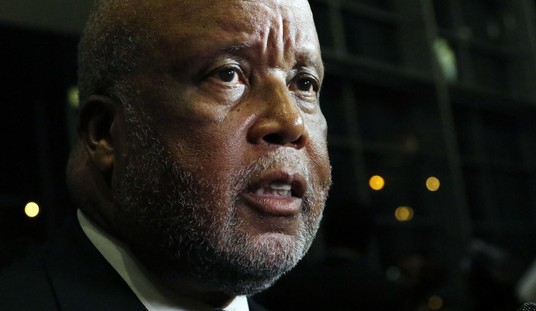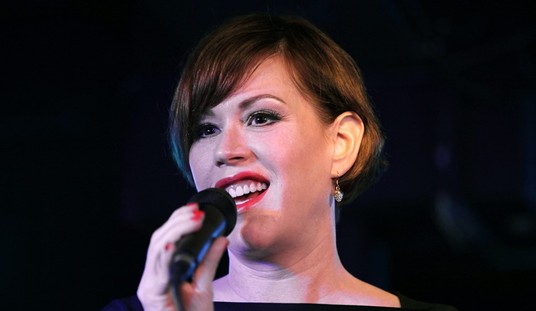“Pop Culture’s Most Popular TV Show Is — Brace Yourself — The Bible,” Megan Basham writes at Acculturated:
This past Sunday the television industry felt the ground shake when the first installment of the History Channel’s five-part miniseries, The Bible, drew a whopping 14.3 million viewers. To put that in perspective, those are higher ratings than American Idol drew on Fox in the same week. Higher ratings than the premiere of Celebrity Apprentice on NBC. And it officially made The Bible the number one scripted cable broadcast of the year.
The news was apparently so astonishing it prompted Business Week to investigate exactly how the basic cable network pulled it off and inspired Time magazine’s resident T.V. critic, James Poniewozik, to ponder whether The Bible’s success will lead to further mainstream forays into religious-themed entertainment.
What’s more astonishing, given how often pro-faith productions put up massive numbers, is that major media outlets still feel the need to run shocked headlines about it.
First, of course, came The Passion of the Christ. The highest-earning R-rated movie of all time was expected to issue a wake-up call to the industry about the potential for films based on Scripture. When it didn’t, a series of indie movies from Sherwood Baptist Church reaped so much cash from their fairly meager showing, the Hollywood Reporter called them, “some of the most profitable films in modern history.” Then early last year the New York Times noted the success of the pro-Catholic, pro-life film, October Baby. And late last year American Bible Challenge debuted as the number one show ever to run on the Game Show Network.
All of this should have sent a clear message to network and studio executives long before last Sunday—if you build something of even middling quality (and, unfortunately, middling is generous in The Bible’s case) that is even remotely respectful of Christian faith, Christians of all stripes will tune in or buy tickets to see it. But it didn’t. Or at least, it didn’t if Time’s Poniewozik is any indication of what other industry insiders are saying to one another.
Why hasn’t there been another Passion? First of all, Hollywood is under no obligation to produce product that doesn’t reflect its worldview, any more than, say, National Review is obligated to run articles trumpeting the joys of atheism, abortion, and Obama.
The Passion got made because Mel Gibson, at the height of his career, was willing to gamble $25 million or so of his own money and had sufficient experience as a filmmaker to shepherd (pardon the pun) the movie through to completion and to secure a distributor. In contrast, the vast majority of the rest of Hollywood’s product is made by committee. A Hollywood executive who’s an atheist or agnostic has to ask himself, can he assemble a crew — a producer, a screenwriter and a director at a minimum — who are religious enough or, at a bare minimum, respectful and knowledgeable enough of religion to produce a product that a religious audience would accept? Then, is the executive who oversees the movie willing to ride out the controversy such a film would engender from the left, including attacks from, say, Time, the Daily Kos, Huffington Post, and MSNBC? Perhaps most importantly, at least from the point of view of our hypothetical executive’s ego, is he willing to be ridiculed by his peers at cocktail parties in Beverly Hills and on Park Avenue? (It’s not a coincidence that these are some of the same reasons why there isn’t another conservative or libertarian television channel to siphon viewers away from Fox News.) Best to bankroll Star Trek 26, Die Hard 13, or Star Wars: Episode Seven, instead. Besides, I hear this year is The Year of the Sequel, anyhow.
Regarding Time’s astonishment that a religious TV series is cleaning up in the ratings, again, consider the source, and the environment its editors and writers marinate in. While there’s a move afoot to spin-off Time, Inc. by the end of the year, at the moment, it’s still part of Time-Warner-CNN-HBO. Anti-religious messages are reinforced by all corners of that conglomeration, ever since Time famously asked “Is God Dead?” on its cover nearly half a century ago. As Andrew Klavan noted in his PJM column, Sports Illustrated, its sister publication, attacked religion and the NFL shortly before the most recent Super Bowl. Both illustrate how far the collective worldview of the staffers of magazines founded by Henry Luce, whose parents were Christian missionaries to China, has come.
CNN has been anti-religious since the days of founder Ted Turner sneering at his employees for wearing ashes on Ash Wednesday as “Jesus freaks” and declaring “Christianity is a religion for losers.” Last fall the network ran the following headline on their Website: “White Protestants, your monopoly is over.” As Ben Shapiro noted at the time:
The deep racism and anti-religious bigotry of the column is glossed over by CNN editors, who refuse to acknowledge that had this column been written about any other religion or race, it would be unprintable. Only according to the left should the racial makeup of the delegates at a convention be an important element of the political discussion; only according to the left should the personal religious beliefs of candidates, rather than their governing values, be the issue.
Meanwhile, HBO is going for maximum hype with a minimal audience. John Nolte of Big Hollywood writes:
Nobody watches HBO’s “Girls.”
Nobody.
In a country of over 300 million, 866,000 viewers is statistically zero.
Lena Dunham, creator of the HBO series ‘Girls,’ has quietly shaken up the writing staff for her breakout comedy-drama about a group of young women making their way in New York.
“Breakout?” Season two’s ratings are worse than season one’s.
At the Breitbart Conversation group blog, Ace posits why such low-rated shows receive so much media attention. “Middle Aged Liberal Women Working In the Media Rule Your Television Set”:
I have no evidence for this so I’m a little embarrassed about posting this (but not so embarrassed I won’t post it, note).
But based on my experience, it does seem to me that if Middle Aged Liberal Women Who Work in the Media like a show, suddenly one cannot escape hearing about it. It’s suddenly ubiquitous.
How many people watched Sex & the City? I don’t know, but based on the never-ending mentions in the media, you’d think the ratings on that were 100.00. 100% of the public was tuned in every week to see the exploits of Samantha, and the cute one, and the promiscuous one, and the other one.
I don’t know the politics of Mad Men (though I have heard-tell that it largely about delivering a frisson of satisfaction for liberal women about the dastardly men of the late 50s), but I’m going to guess here that Middle Aged Liberal Women Who Work in the Media are Huge Fans, because dang, if I have not absorbed whole plotlines of the show just by reading Maureen Dowd’s column. (Tell a lie, I don’t read her column. No one does. But you know what I mean.)
Come to think of it, Middle Aged Liberal Women Who Work in the Media also helps to explain much of what’s wrong with the commercials that appear on television as well.
Oh, and considering Time magazine going off the rails and echoing Nietzsche and Hollywood’s rejection of religious-themed movies, in both cases, you can trace a clear line from the atheism and (especially) the nihilism back to ol’ Friedrich as well.
Related: “Rasmussen: Americans Feel Most Connected to Religious Groups.” But then, that all depends on how you define “religious groups,” of course.
Update: QED.
(Via Power Line. Thumbnail on PJM homepage assembled from multiple Shutterstock.com images.)









Join the conversation as a VIP Member